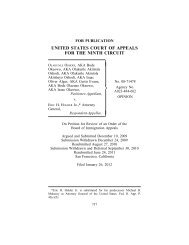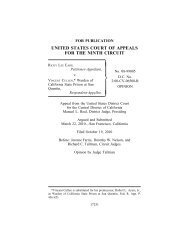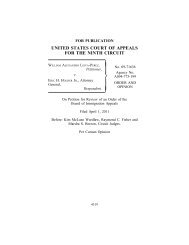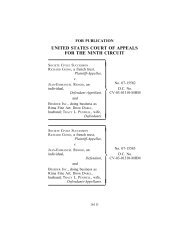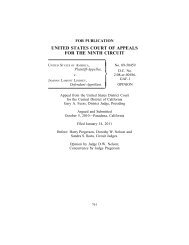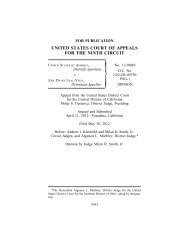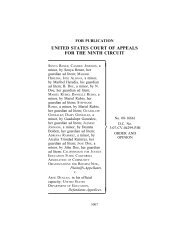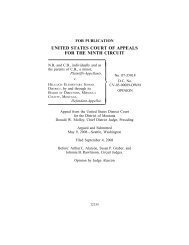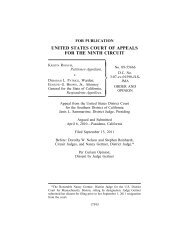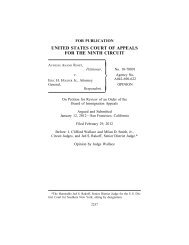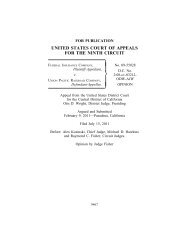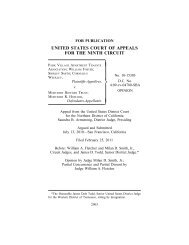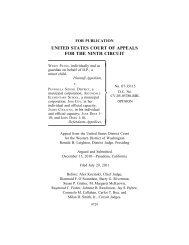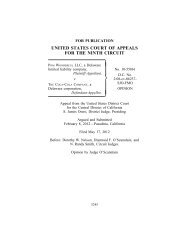USA v. Xavier Alvarez - Ninth Circuit Court of Appeals
USA v. Xavier Alvarez - Ninth Circuit Court of Appeals
USA v. Xavier Alvarez - Ninth Circuit Court of Appeals
Create successful ePaper yourself
Turn your PDF publications into a flip-book with our unique Google optimized e-Paper software.
UNITED STATES v. ALVAREZ<br />
11869<br />
see also Schacht v. United States, 398 U.S. 58, 63 (1970)<br />
(“An actor, like everyone else in our country, enjoys a constitutional<br />
right to freedom <strong>of</strong> speech, including the right openly<br />
to criticize the Government during a dramatic performance.<br />
The last clause <strong>of</strong> [18 U.S.C. § 772(f)] denies this constitutional<br />
right to an actor who is wearing a military uniform by<br />
making it a crime for him to say things that tend to bring the<br />
military into discredit and disrepute.”).<br />
Finally, even assuming the Act prevents a harm legitimately<br />
preventable by means <strong>of</strong> a speech or writing restriction,<br />
to say that the Act in its current form fits within<br />
defamation doctrine would require us to ignore the nature <strong>of</strong><br />
the harm against which the defamation law is intended to protect.<br />
A victim’s right to recovery for defamation trumps the<br />
defamer’s First Amendment interests because, when it comes<br />
to defamatory falsehoods, “the truth rarely catches up with a<br />
lie” so the “opportunity for rebuttal seldom suffices to undo<br />
harm.” Gertz, 418 U.S. at 344 n.9; see also Hustler, 485 U.S.<br />
at 52 (explaining that defamatory falsehoods “cause damage<br />
to an individual’s reputation that cannot easily be repaired by<br />
counterspeech, however persuasive or effective”). The harm<br />
caused by defamation is thought to be irreparable even when<br />
the truth is brought to light. Here, in contrast, when someone<br />
falsely claims to have been awarded a Congressionallyauthorized<br />
medal, and his or her false claims are exposed as<br />
self-aggrandizing lies, scandal results, and counter-speech can<br />
vindicate the truth in a way the law presumes rebuttal <strong>of</strong><br />
defamatory falsehoods cannot. Indeed, <strong>Alvarez</strong> was perceived<br />
as a phony even before the FBI began investigating him, and<br />
he has since been publicly humiliated in his community and<br />
in the press (one online article described him as an “idiot,”<br />
and another post described him as a “jerk”). When valueless<br />
false speech, even proscribable speech, can best be checked<br />
with more speech, a law criminalizing the speech is inconsistent<br />
with the principles underlying the First Amendment. See<br />
infra pp. 11879-80.



